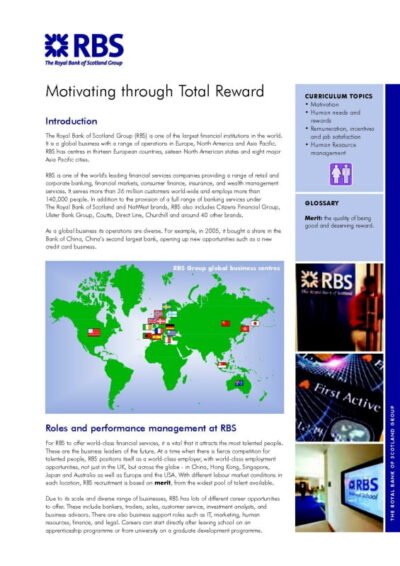Paralympic athletes face distinct mental health challenges that are often overlooked in the sports world. These individuals must balance the demands of their athletic pursuits with the complexities of living with a disability. This dual challenge can impact their mental well-being, potentially leading to feelings of isolation, frustration, and experiences of discrimination.
The pressure to perform at an elite level in their sport adds another layer of stress and anxiety. Paralympic athletes frequently encounter physical and emotional barriers that may not be fully understood by their able-bodied counterparts. This makes it essential to address their mental health needs in a comprehensive and sensitive manner.
The journey to becoming a Paralympic athlete is often marked by significant physical and emotional trauma. Many athletes have had to adapt to life-altering injuries or conditions, which can result in feelings of grief, loss, and identity struggles. The process of accepting their disability and finding a new sense of purpose through sports can be emotionally demanding.
It is crucial to recognize the unique mental health challenges faced by Paralympic athletes and provide them with appropriate support and resources to help them thrive both in their athletic careers and personal lives.
Key Takeaways
- Paralympic athletes face unique mental health challenges due to the intersection of disability and high-performance sports.
- Mental health can significantly impact athletic performance at the 2024 Paralympics, highlighting the need for support and resources.
- Strategies for promoting mental health among Paralympic athletes include access to mental health professionals, peer support, and destigmatization efforts.
- Mental health education and awareness are crucial in the Paralympic community to foster understanding and support for athletes’ well-being.
- Overcoming stigma and barriers to mental health care for Paralympic athletes is essential for ensuring their overall well-being and success in sports.
The Impact of Mental Health on Athletic Performance at the 2024 Paralympics
The Added Pressure of Competing with a Disability
For Paralympic athletes, the added pressure of competing with a disability can further exacerbate the importance of mental well-being. An athlete’s mental health can directly affect their focus, confidence, and overall mindset going into a competition. Issues such as anxiety, depression, or trauma can hinder an athlete’s ability to perform at their peak, regardless of their physical capabilities.
The Impact of Mental Health on Performance
The mental state of an athlete can greatly influence their ability to perform at their best. Issues such as anxiety, depression, or trauma can hinder an athlete’s ability to perform at their peak, regardless of their physical capabilities.
Prioritizing Mental Health Support
Therefore, it is crucial for the Paralympic community to prioritize mental health support and resources leading up to the 2024 games. By addressing the mental well-being of athletes, we can help ensure that they have the tools and support they need to excel in their respective sports and represent their countries with pride.
Strategies for Supporting and Promoting Mental Health Among Paralympic Athletes

Supporting and promoting mental health among Paralympic athletes requires a multifaceted approach that addresses their unique needs and challenges. One key strategy is to provide access to mental health professionals who are knowledgeable about the intersection of sports and disability. These professionals can offer specialized support and guidance tailored to the experiences of Paralympic athletes, helping them navigate the emotional complexities of their journey.
Additionally, creating a culture of open communication and destigmatizing mental health within the Paralympic community is essential. Athletes should feel comfortable seeking help and discussing their mental well-being without fear of judgment or discrimination. Furthermore, implementing proactive mental health programs and resources can help athletes build resilience and coping skills leading up to the 2024 Paralympics.
This can include workshops, support groups, and access to resources for managing stress, anxiety, and other mental health challenges. By promoting a holistic approach to athlete well-being, we can empower Paralympic athletes to prioritize their mental health alongside their physical training, ultimately leading to improved performance and overall quality of life.
The Role of Mental Health Education and Awareness in the Paralympic Community
Education and awareness play a crucial role in addressing mental health challenges within the Paralympic community. By providing athletes, coaches, and support staff with comprehensive education about mental health, we can help break down barriers and misconceptions surrounding disability and mental well-being. This includes understanding the signs and symptoms of common mental health issues, as well as learning how to provide effective support and resources for those in need.
Moreover, raising awareness about mental health within the Paralympic community can help reduce stigma and create a more inclusive and supportive environment for all athletes. This can be achieved through campaigns, workshops, and open discussions that highlight the importance of prioritizing mental well-being alongside physical training. By fostering a culture of empathy and understanding, we can create a community where athletes feel empowered to seek help and support when needed.
Overcoming Stigma and Barriers to Mental Health Care for Paralympic Athletes
Despite progress in recent years, stigma and barriers to mental health care still exist within the Paralympic community. Many athletes may face internalized stigma or fear of judgment when it comes to seeking help for their mental well-being. Additionally, accessibility to mental health resources may be limited for some athletes due to financial constraints or lack of specialized support for individuals with disabilities.
To overcome these challenges, it is essential to continue advocating for inclusive and accessible mental health care for all Paralympic athletes. This includes working with organizations, governments, and healthcare providers to ensure that athletes have access to affordable and specialized mental health services. Furthermore, addressing stigma through education and awareness initiatives can help create a more supportive environment where athletes feel comfortable seeking help without fear of discrimination.
The Connection Between Mental Health and Overall Well-being in Paralympic Athletes

The Importance of Mental Health in Sports Performance
When athletes are supported in their mental health journey, they are better equipped to manage stress, build resilience, and maintain a positive mindset – all of which contribute to their overall well-being.
A Holistic Approach to Well-being
Moreover, prioritizing mental health can have a ripple effect on an athlete’s life beyond sports. By addressing mental health challenges and providing support, athletes can experience improved relationships, better quality of life, and a stronger sense of purpose.
Building a Supportive Paralympic Community
This holistic approach to well-being not only benefits the individual athlete but also contributes to a more inclusive and supportive Paralympic community as a whole.
The Importance of Mental Health Advocacy and Resources for Paralympic Athletes
Mental health advocacy and resources are essential for ensuring that Paralympic athletes have the support they need to thrive in both their athletic pursuits and personal lives. Advocacy efforts can help raise awareness about the unique mental health challenges faced by Paralympic athletes and push for policy changes that prioritize their well-being. This includes advocating for increased funding for mental health programs, as well as promoting inclusivity and accessibility within existing support systems.
Additionally, providing comprehensive resources for athletes – including access to mental health professionals, support groups, and educational materials – is crucial for addressing their diverse needs. By investing in these resources, we can empower athletes to prioritize their mental well-being and seek help when needed. Ultimately, by advocating for mental health support within the Paralympic community, we can create a more inclusive and supportive environment where all athletes have the opportunity to thrive both on and off the field.
One related article to The Importance of Mental Health for Athletes at the 2024 Paralympics is “Five Things Leadership Teams Should Do When a CEO Leaves” from businesscasestudies.co.uk. This article discusses the importance of effective leadership and management during times of transition, which is relevant to the mental health and well-being of athletes as they prepare for and compete in the Paralympics. Effective leadership and support systems are crucial for creating a positive and healthy environment for athletes to thrive in.
FAQs
What is the importance of mental health for athletes at the 2024 Paralympics?
Mental health is crucial for athletes at the 2024 Paralympics as it can impact their performance, overall well-being, and ability to cope with the pressures of competition.
How does mental health affect athletes at the 2024 Paralympics?
Mental health can affect athletes at the 2024 Paralympics in various ways, including their confidence, focus, motivation, and ability to manage stress and anxiety.
What support is available for athletes’ mental health at the 2024 Paralympics?
Athletes at the 2024 Paralympics have access to mental health support services, including counseling, therapy, and resources to help them manage their mental well-being during the competition.
What are some common mental health challenges faced by athletes at the 2024 Paralympics?
Common mental health challenges faced by athletes at the 2024 Paralympics may include performance anxiety, depression, stress, and the pressure to succeed in a highly competitive environment.
How can athletes at the 2024 Paralympics prioritize their mental health?
Athletes at the 2024 Paralympics can prioritize their mental health by seeking support, practicing self-care, maintaining a healthy work-life balance, and being open about their mental well-being.
 The importance of cause related marketing (PDF)
The importance of cause related marketing (PDF)  Motivating through Total Reward (PDF)
Motivating through Total Reward (PDF)  The repositioning of Hobnobs (PDF)
The repositioning of Hobnobs (PDF) 